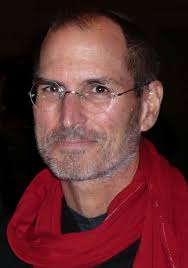
The #MeToo movement exploded into America’s consciousness in the Fall of 2017, shaking executive offices and boardrooms across the country. Initially promoted in 2006 by women of color who had suffered sexual abuse, the movement became mainstream on social media after actress Alyssa Milano’s tweet, “If all the women who have been sexually harassed or assaulted wrote ‘Me too.’ as a status, we might give people a sense of the magnitude of the problem.” The massive response to her tweet was unexpected and became the basis for a national movement.
Encouraged by movie stars recounting their experiences, millions of women (and some men) have written or spoken about their mistreatment by powerful men and women. For many, the extent of sexual harassment and abuse in our male-dominated society was a revelation as it became clear that no sphere — schools, sports organizations, government agencies, churches, or workplaces — has been immune to the powerful exploiting the powerless for generations.
The consequences of sexual misconduct are swift in today’s climate. As TIME magazine reports, “Nearly every day, CEOs have been fired, moguls toppled, icons disgraced. In some cases, criminal charges have been brought.” Time’s Up, an advocacy group formed in 2018, focuses solely on sexual harassment and women’s issues in the workplace. One of their aims is to bring about additional federal and state legislation to punish companies that tolerate harassment.
While many companies have had sexual harassment policies in place for decades, this new atmosphere places managers under even stronger pressure to uphold these policies and provide employees with a safe, supportive working environment. If you’re a manager wondering how the #MeToo movement affects your responsibilities, here is what you need to know.
How Extensive Is the Problem?
WIRED magazine reports that the extent of harassment in the workplace is unknown due to the increased use of non-disclosure agreements (NDAs) in settlement negotiations. Confidentiality provisions can hide the acts of serial abuse by powerful, wealthy men such as current President Donald Trump, former President Bill Clinton, and Roger Ailes for years. As former Fox News host Gretchen Carlson, who sued Ailes to escape the NDA she signed with Fox in 2013, told WIRED, these agreements “both silence the victim and fool our culture into thinking we’ve come so far when we have not.”
Women have silently endured sexual harassment in the workplace for generations. In previous generations, they rarely reported or spoke of these instances for fear they might lose their jobs or chances for promotion. A 2016 study by the Equal Employment Opportunity Commission (EEOC) found that three-quarters of working women had experienced unwanted sexual attention or sexual coercion (including physical touching) on the job, but less than 10% filed a formal complaint.
Read more . . .



 Often, there is some grain of truth in old sayings and myths. That is why they persist over time and generations. As I considered my own situation, I realized that one of the first questions I needed to answer was whether I could truly change old habits and patterns of thinking, if wanting to have a different life and future is really sufficient to make the effort successful. Perhaps the desire alone is not enough and there are factors that preclude some people from ever being satisfied with their achievements or happy.
Often, there is some grain of truth in old sayings and myths. That is why they persist over time and generations. As I considered my own situation, I realized that one of the first questions I needed to answer was whether I could truly change old habits and patterns of thinking, if wanting to have a different life and future is really sufficient to make the effort successful. Perhaps the desire alone is not enough and there are factors that preclude some people from ever being satisfied with their achievements or happy. [/one_third][one_third]Who is happier – a Steve Jobs who made millions by designing products that makes life more entertaining, exciting, and easier for millions or Mother Theresa who lived a simple life while focusing the world’s attention on the poor, the homeless, the persecuted? I suspect that both were happy and both probably considered their lives a success, but neither would have changed places with the other expecting to find more happiness as a result.[/one_third] [one_third_last]
[/one_third][one_third]Who is happier – a Steve Jobs who made millions by designing products that makes life more entertaining, exciting, and easier for millions or Mother Theresa who lived a simple life while focusing the world’s attention on the poor, the homeless, the persecuted? I suspect that both were happy and both probably considered their lives a success, but neither would have changed places with the other expecting to find more happiness as a result.[/one_third] [one_third_last] [/one_third_last]
[/one_third_last]